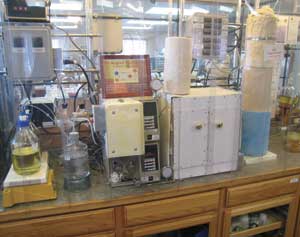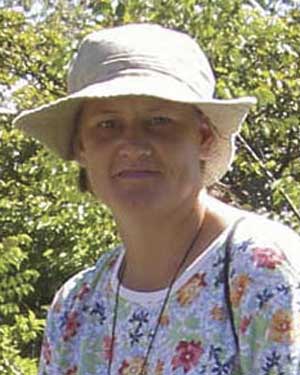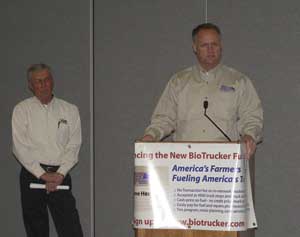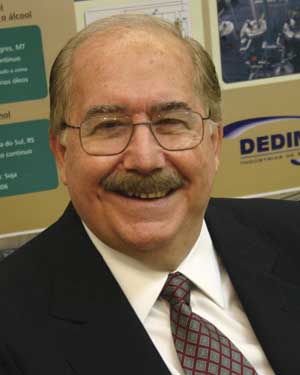June 2008
Featured

A Column of Support
By Jerry W. Kram
What started as a student research project at Augsburg College may become a major change in the biodiesel industry. A team of scientists and engineers have turned a tool for purifying and separating chemicals into a six-second process for turning the poorest quality vegetable oil into biodiesel. The first commercial-scale plant using the process should come on line this year.
The Tangled Web: Pipelines, Jets and Biodiesel
By Ron Kotrba
The mere mention of moving biodiesel through pipelines brings so many related aspects into question that Biodiesel Magazine decided it was time to address the totality of these interrelated concerns.

Multidimensional Moringa
By Susanne Retka Schill
The oil from the Moringa tree is considered to be a more sustainable biodiesel feedstock than jatropha oil by those who argue that sustainability is better served by feedstocks that can yield both food and fuel.
As relative newcomers to the industrial world, biodiesel producers, who are generally regarded as environmentally friendly, need to be good neighbors when it comes to properly disposing of byproducts. Although the scientific and regulatory communities have yet to agree on the toxicity of biodiesel byproducts, the industry should be prepared as the regulatory framework for the fledgling industry materializes.

Card-Carrying Biotruckers
By Timothy Charles Holmseth
A new breed of truckers is emerging among the ranks of the transportation industry and their numbers are increasing up and down the lanes of U.S. highways. The biotrucker has arrived. Although the moniker may sound like some kind of futuristic fictional character from another planet, these men and women are red-blooded Americans.

Biodiesel's Female Factor
By Kris Bevill
In an industry born from grease, oil and animal fat, men have traditionally led the opening and operating of biodiesel plants. In Tennessee, however, one woman is determined to make a difference for her children and the world by creating biodiesel communities.

Taxing time for European biodiesel
By Jon Evans
Can a thriving industry collapse because of tax policy? That appears to be happening in Germany and perhaps elsewhere. If true-what does it mean for biodiesel worldwide?

Dedini's Blend: Ethanol Moves in With Biodiesel
By Elizabeth Ewing
Co-locating biodiesel and ethanol plants provides economies for both and helps a global ethanol leader meet biodiesel mandates.

A Closer Look at Sliding Vane Pump Technology
By Tom Stone
Green Star reports Phase III algae results
By Jerry W. Kram







